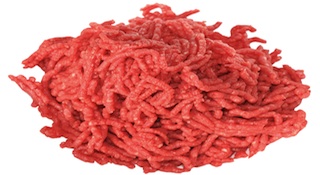|
The new U.S. estimate, which is significantly higher than FSIS's initial report, was released by the agency Sunday right as Canadian health officials announced more E. coli O157:H7 illnesses and expanded their beef recall for the sixteenth time. The recall of more than 1,800 different products is the largest in Canadian history, impacting dozens of retailers. U.S. health authorities have not announced any American illnesses, but in Canada there are 10 confirmed E. coli cases linked to the contaminated beef. After conducting a check on the U.S. side of the recall, FSIS determined that there were approximately 1.1 million pounds of beef trim and 1.4 million pounds of primal and sub-primal cuts used to produce steaks, roasts, mechanically tenderized steaks and roasts, and ground beef. For the most up-to-date list of recalled products from U.S. retailers — which include Safeway, Sam's Club, Walmart, Albertson's, Fred Meyer, Kroger, and others — check eFoodAlert. The Canadian Food Inspection Agency has posted a list of recalled products as well. XL Foods, Inc., one of the largest beef processors in Canada, remains closed as the company re-tools its safety protocols. Over the weekend the company said it deeply regretted the illnesses linked to beef products. "Our thoughts are with the affected people at this time. We are fully committed and working diligently with the CFIA to build on many of our industry-leading practices and intensify and enhance food safety systems to exceed existing high standards and regain the trust of Canadian consumers." The lengthy timeline of the recall has led many to question whether health officials, on both sides of the border, acted swiftly to protect public health. FSIS said it started halting product at the border after finding E. coli O157:H7 in a routine microbiological sample pulled on Aug. 30. U.S. officials confirmed the positive E. coli O157:H7 test late Sept. 3 and notified the Canadian Food Inspection Agency of the issue Sept. 4. The positive test sparked intensive follow up testing by FSIS officials. On the same day, according to a timeline released by CFIA, the Canadians found their own positive test during a routine test of beef trim, but the agency did not order a recall because it determined the product in question did not reach consumers. Three more E. coli O157:H7 positives were reported back to CFIA between Sept. 4 and Sept. 12., which indicates the slaughter plant likely lost control of its process to prevent contamination for some time, known in the industry as a "high event period." The CFIA issued its first recall on Sept. 16 and since then the agency has expanded the recall on almost a daily basis. In the U.S., FSIS issued a public health alert on Sept. 20, but the agency is not issuing a recall "because the goal of such an action is to have the establishment most directly associated with producing adulterated product remove the product from commerce." In this case, that establishment is XL Foods in Canada so, FSIS says, it's CFIA's responsibility to oversee the effectiveness of the recall in Canada, while FSIS monitors the recall stateside. E. coli O157:H7 is a potentially deadly bacterium that can cause bloody diarrhea, dehydration, and in the most severe cases, kidney failure. The very young, seniors and persons with weak immune systems are the most susceptible to foodborne illness. Recalled products should be discarded. In general, ground beef products should be cooked to an internal temperature of 160 degrees to kill bacteria. Those concerned about a serious foodborne illness should contact his or their health care provider. © Food Safety NewsMore Headlines from Food Recalls |
10.08.2012
2.5 Million Pounds of Recalled Canadian Beef Entered U.S.
Subscribe to:
Post Comments (Atom)

No comments:
Post a Comment